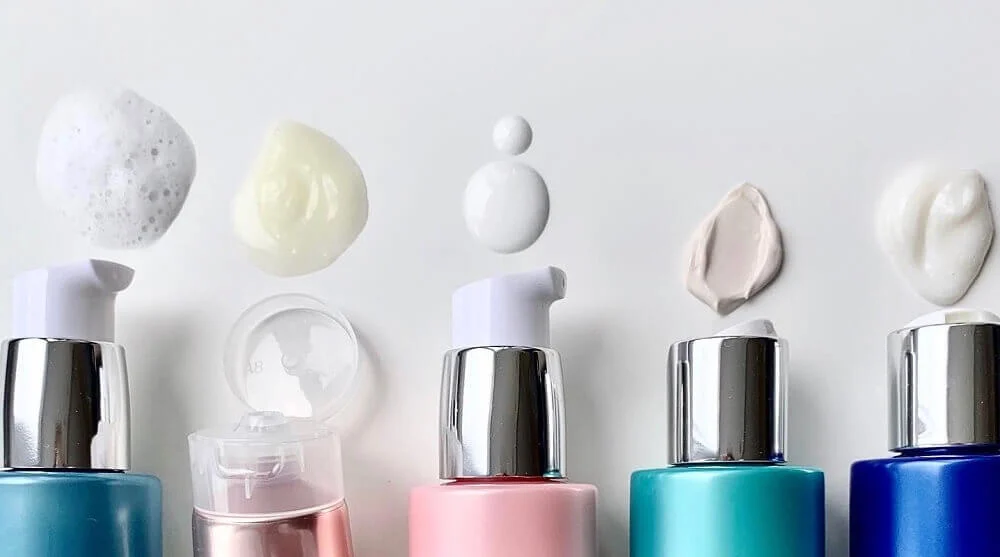Milk Cleanser, Foam Cleanser & Sunscreen

Milk Cleanser, Foam Cleanser & Sunscreen
Choosing between milk and foam cleansers often depends on your skin type and personal preferences. If you have dry or sensitive skin, a milk cleanser might be more suitable as it cleanses without stripping moisture. For oilier skin types, a foam cleanser may be preferred for its deep cleansing properties. It’s essential to select a cleanser that effectively cleanses your skin without causing any irritation or dryness.
Foam Cleansers:
- Deep Cleansing: Foam cleansers usually produce a foamy lather and are more effective in removing excess oil, dirt, and impurities from the skin, making them suitable for oily or acne-prone skin types.
- Can Be Drying: Some foam cleansers might be more drying compared to milk cleansers due to their ability to deeply cleanse and remove excess oils. This might not be ideal for those with dry or sensitive skin.
- Better for Removing Heavy Makeup: Foam cleansers are often preferred for removing heavier makeup or sunscreen residues due to their stronger cleansing properties.
- Refreshed Feeling: They tend to leave the skin feeling refreshed and thoroughly cleansed, which can be beneficial for those who prefer a ‘clean’ sensation after washing their face.
Milk Cleansers:
- Gentle and Nourishing: Milk cleansers are generally gentle and more hydrating. They often contain moisturizing ingredients like milk proteins, botanical extracts, or oils that help in maintaining the skin’s moisture barrier while cleansing.
- Suitable for Dry or Sensitive Skin: These cleansers are particularly suitable for dry or sensitive skin types that require a more soothing and less stripping cleansing experience.
- Effective for Light Makeup Removal: Milk cleansers are effective for removing light makeup, dirt, and impurities without causing excessive dryness.
- Less Foaming: They typically do not produce much foam or lather, which can be a preference for those with dry or sensitive skin.
- Moisturizing Properties: The nourishing elements in milk cleansers can leave the skin feeling softer and more moisturized after cleansing.
Sunscreen is incredibly important for skin health and protection. Here’s why:
- UV Protection: Sunscreen shields the skin from harmful UV (ultraviolet) rays. UVB rays cause sunburn, while UVA rays penetrate deeper, leading to premature aging, wrinkles, and skin damage. Sunscreen with broad-spectrum protection blocks both types of rays.
- Skin Cancer Prevention: Consistent use of sunscreen helps reduce the risk of developing skin cancers, including melanoma and other types caused by UV exposure.
- Preventing Premature Aging: Sun exposure is a leading cause of premature aging. Regular use of sunscreen helps prevent wrinkles, fine lines, age spots, and sagging skin, maintaining a youthful appearance.
- Maintaining Even Skin Tone: Sunscreen helps prevent the development of hyperpigmentation and uneven skin tone caused by sun damage and helps fade existing dark spots.
- Protection Year-Round: UV rays are present even on cloudy or overcast days and can penetrate through windows. Using sunscreen daily, regardless of weather or indoor/outdoor activities, is crucial.
- Post-Procedure Care: After cosmetic procedures like chemical peels, laser treatments, or microdermabrasion, the skin becomes more sensitive to the sun. Sunscreen is essential to protect the skin during the healing process and prevent further damage.
It’s crucial to choose a broad-spectrum sunscreen with an SPF (Sun Protection Factor) of 30 or higher and to apply it generously to all exposed skin areas. Reapply every two hours, or more frequently if swimming or sweating. Additionally, wearing protective clothing, seeking shade, and avoiding prolonged sun exposure during peak hours (10 AM to 4 PM) complement the effectiveness of sunscreen in safeguarding the skin.
Incorporating sunscreen into your daily skincare routine is a fundamental step in maintaining healthy, protected skin and preventing long-term damage caused by UV radiation.



